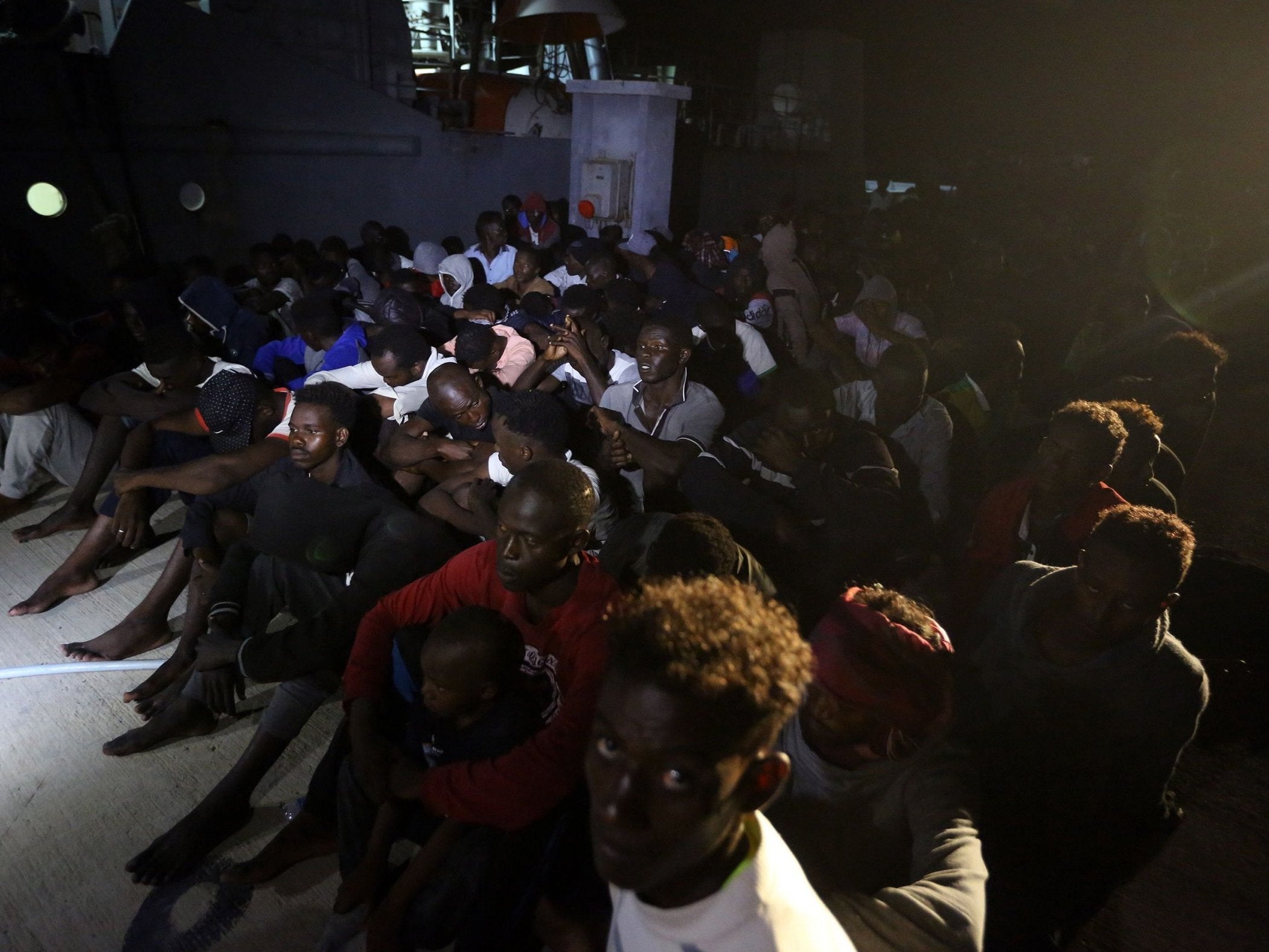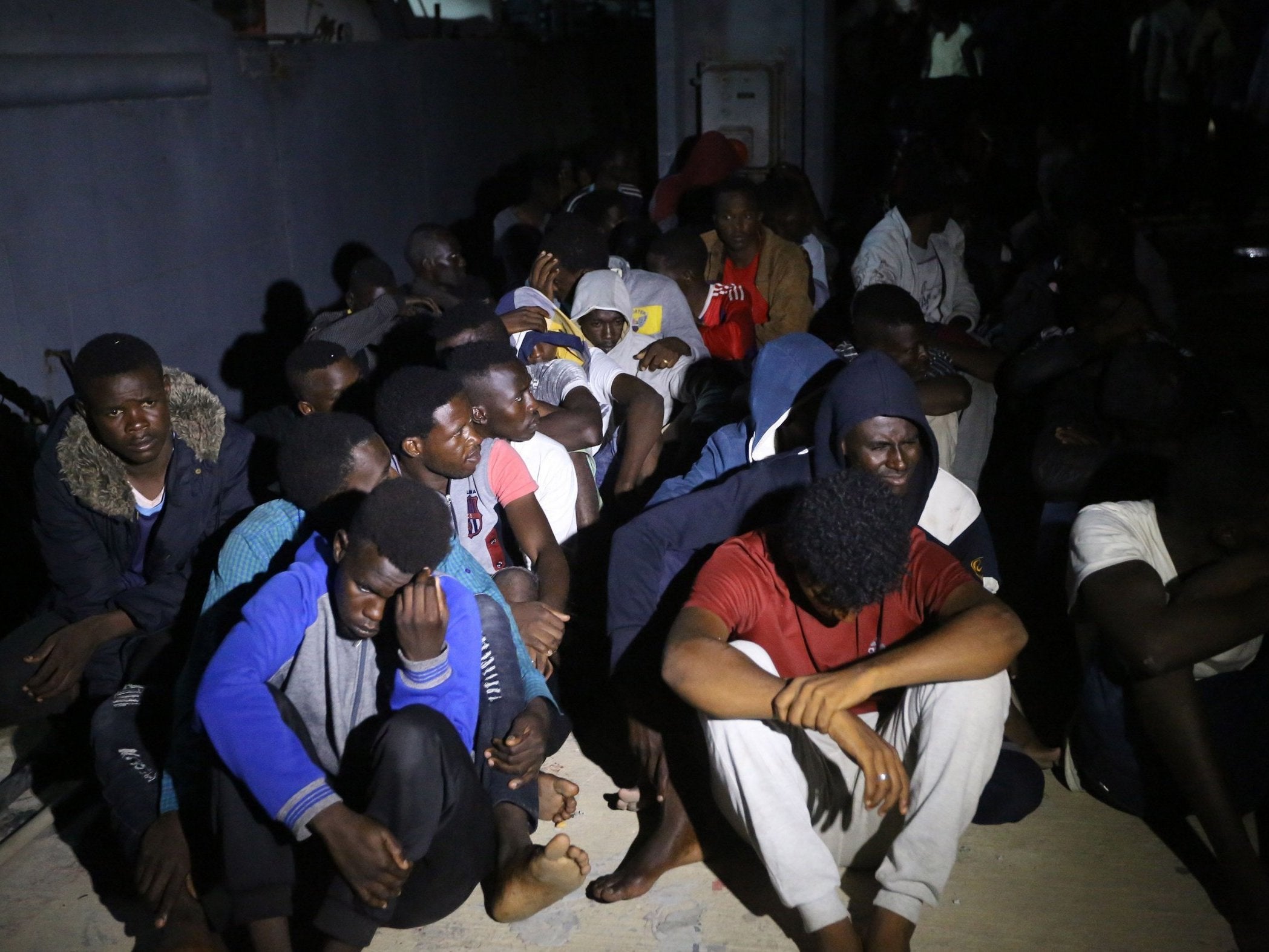Libya's coastguard says it has intercepted more than 570 refugees bound for Europe
North African nation is a major route for those fleeing poverty and civil war

Your support helps us to tell the story
From reproductive rights to climate change to Big Tech, The Independent is on the ground when the story is developing. Whether it's investigating the financials of Elon Musk's pro-Trump PAC or producing our latest documentary, 'The A Word', which shines a light on the American women fighting for reproductive rights, we know how important it is to parse out the facts from the messaging.
At such a critical moment in US history, we need reporters on the ground. Your donation allows us to keep sending journalists to speak to both sides of the story.
The Independent is trusted by Americans across the entire political spectrum. And unlike many other quality news outlets, we choose not to lock Americans out of our reporting and analysis with paywalls. We believe quality journalism should be available to everyone, paid for by those who can afford it.
Your support makes all the difference.Libya’s coast guard intercepted 574 refugees bound for Europe from the Mediterranean Sea in a single day, a spokesperson has said.
The three groups included 388 men, 66 women and 19 children, a coast guard spokesman, Ayoub Gassim, said in a statement.
He said one group of 292 refugees, including 42 women and 10 children, embarked on the perilous trip for Europe on three rubber boats, but the coast guard stopped them off the coast of the western town of Zawiya.

Another group of 101 refugees on a rubber boat were also rescued off the coast of the capital, Tripoli, the coast guard said in a separate statement.
It also said it had rescued 181 others, including 24 women and nine children, who were in two boats in a separate incident off Tripoli.
Mr Gassim said the refugees came from both African and Middle Eastern countries.
The three groups were intercepted on Monday.
All were given humanitarian aid and were handed over to anti-migration authorities in the town of Tajoura and Tripoli, Mr Gassim said.
The coastguard’s operation should not be considered a rescue, said Aloys Vimard, MSF project coordinator on board the Aquarius, a rescue ship operating in the Mediterranean Sea.
He told The Independent that Libya could not be recognised as a place of safety. “There is no process to claim international protection. People are exposed to a high level of violence and torture. We cannot call it a rescue.”
Mr Vimard said the coastguard ships were also unequipped to rescue refugees from the sea.
“They don’t have life jackets, they don’t have rescue boats. If there is someone in the water,. they cannot retrieve those people from the water. They are not equipped as a rescue boat. It’s concerning.”
He said the operations could be considered a method to “pull back” refugees to Libya, because Italian authorities cannot “push back.”
Once the refugees are returned to Libya, they are sent to detention centres, which Mr Vimard said were in “dire condition.”
“Those people are cramped into large cells without ventilation. They have very little food, one bowl of rice or pasta per day, with very limited access to health.
“Those conditions are inhuman and terrible.”
The interceptions came a day after the UN refugee agency said it is looking into possible violations of international law involving the transport to Libya of 108 migrants rescued at sea by an Italian-flagged mercantile ship.
The UN high commissioner for refugees in Italy said on Twitter that Libya is not a secure port, making such a transfer a violation of international law.
An Italian politician aboard a rescue ship operated by a non-governmental organisation, Nicola Frantoianni, said on Facebook they had proof the ship, Asso Ventotto, was taking the migrants to Libya, calling it “a very serious precedent” if ordered by the Italian coast guard.
Responding to the suspicions, Italy’s interior minister, Matteo Salvini said on Facebook that the Italian coast guard was not involved in the rescue, which was coordinated by the Libyan coast guard.
Libya has emerged as a major transit point to Europe for those fleeing poverty and civil war elsewhere in Africa and the Middle East.
Traffickers have exploited the chaos in Libya following the 2011 uprising in which longtime dictator Muammar Gaddafi was killed.
Libyan authorities have stepped up efforts to stem the flow of migrants, with assistance from European countries, who are eager to slow a phenomenon far-right wing parties have seized upon to gain electoral support.
Join our commenting forum
Join thought-provoking conversations, follow other Independent readers and see their replies
Comments